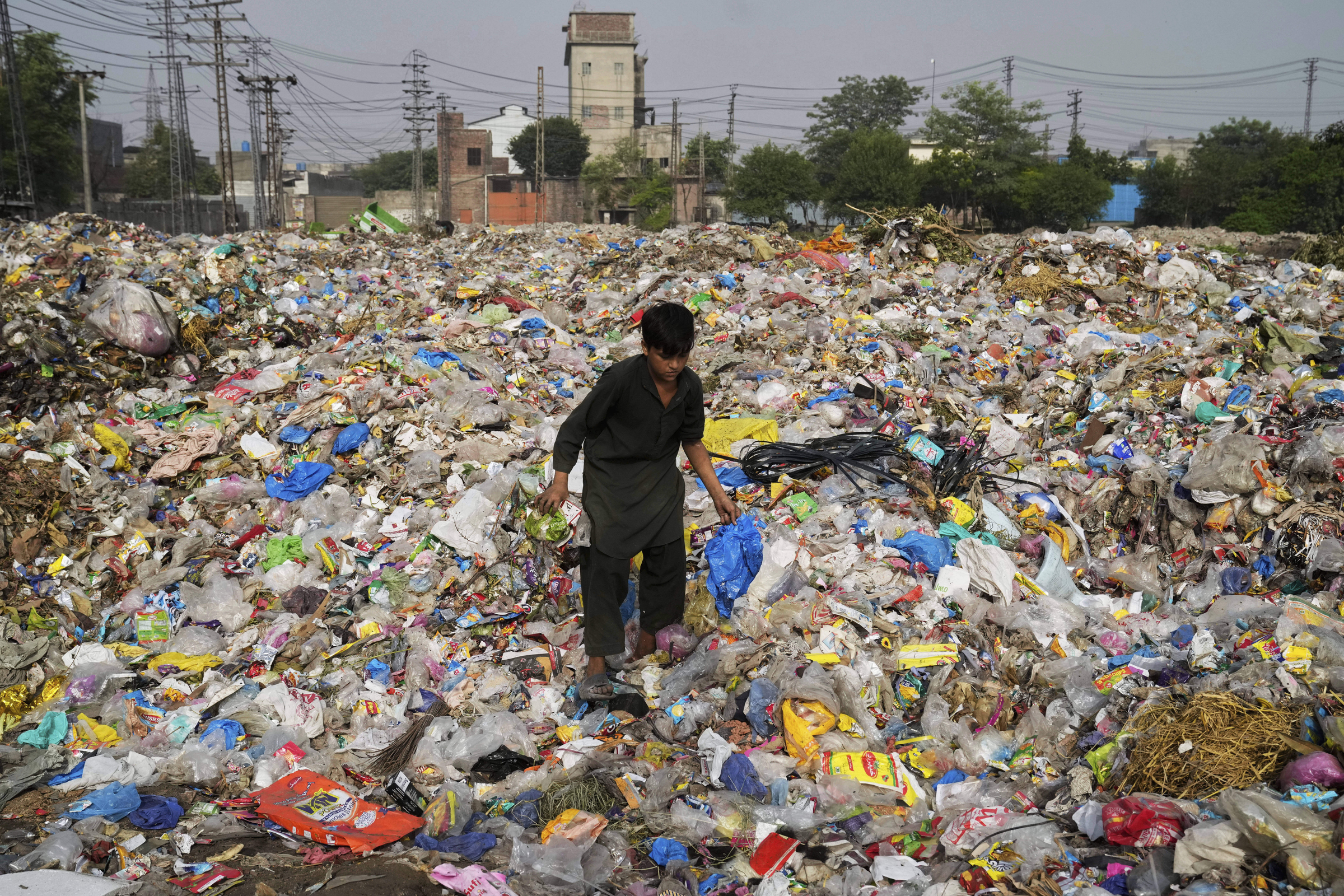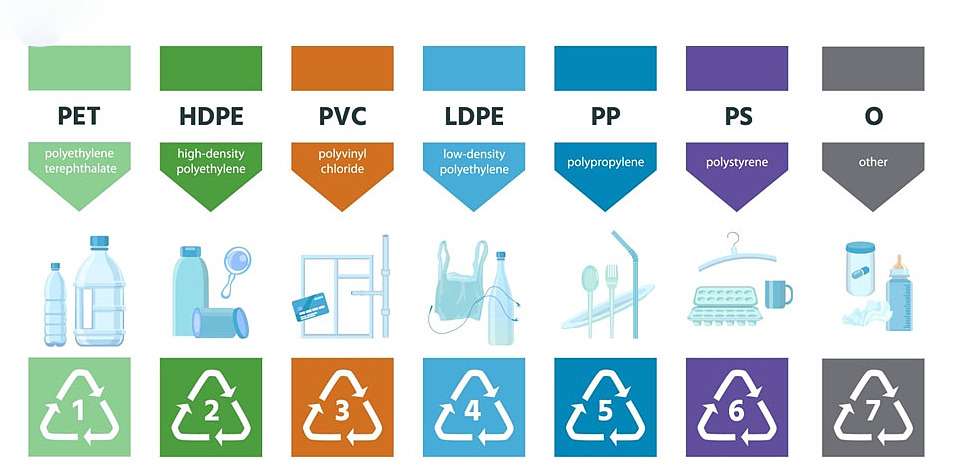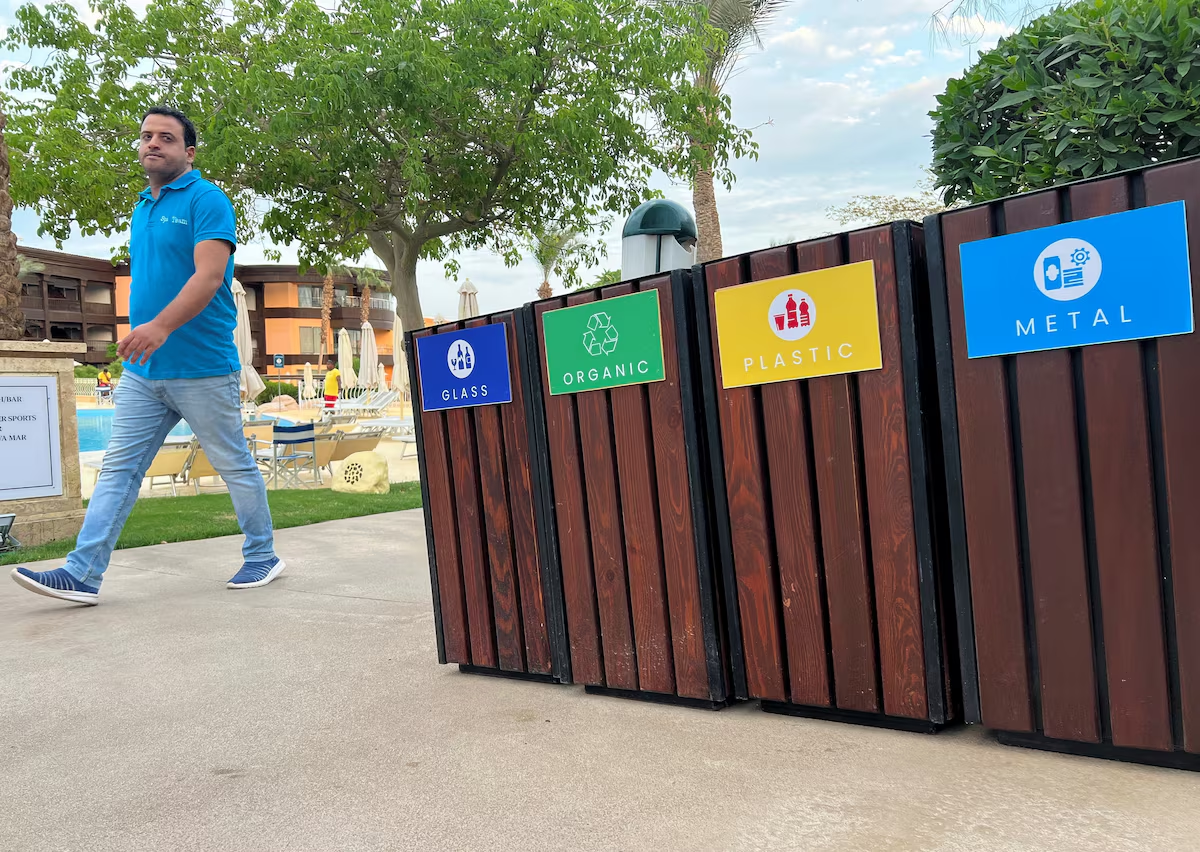The "recyclable" symbol on plastic packaging doesn't guarantee it will be recycled after disposal. While often touted as a solution to pollution from millions of tons of plastic bottles, food containers, and packaging, the plastic recycling rate is only 6%, according to the Organisation for Economic Co-operation and Development (OECD).
This means a significant amount of plastic waste leaks into the environment, polluting ecosystems and impacting human health.
 |
A ragpicker searches for recyclable materials, including plastic, at a landfill site in Lahore, Pakistan, on 7/8. *Photo: AP* |
The exaggerated claims about recycling as a solution to plastic pollution are the main reason the state of California is suing oil giant ExxonMobil, in a lawsuit filed late last year. The lawsuit exposes the bottleneck of the recycling industry, calling it a "half-century deception."
In the lawsuit, Attorney General Rob Bonta said the company deceived consumers by claiming they could "use as much plastic as they want, it will be recycled." Meanwhile, in the US alone, the recycling rate is only 5%.
The lawsuit states that the company was aware that plastic is "extremely costly and difficult to dispose of" and breaks down into harmful microplastics, yet continued to promote recycling as a key solution through news platforms and social media.
Why is plastic difficult to recycle?
According to the OECD, the low recycling rate is because different types of plastic cannot be recycled together. For example, a water bottle might have a PET body, a PP cap, and a PE label. These have different chemical compositions, requiring separate recycling streams. This makes recycling expensive, time-consuming, and requires extensive manual sorting.
 |
Chart showing plastic classification codes. *Graphic with AI support* |
Due to its complex composition, plastic has a much lower recycling rate than other materials. According to data compiled by the Associated Press (AP) from the US Environmental Protection Agency (EPA) and the American Forest & Paper Association, the recycling rate for glass is 31%, and for paper and cardboard, it's 64-74%.
Furthermore, not every locality has a plant or market for recycled materials. In reality, even in areas with collection and processing infrastructure, many plants are essentially plastic production facilities.
Given this situation, Holly Kaufman, Director of the Plastic and Climate Project and Senior Research Fellow at the World Resources Institute, said recycling operations still risk causing air, water, and land pollution that harms local residents, similar to plastic production.
Technological and infrastructural bottlenecks
The most common plastic recycling technology is mechanical, involving washing, shredding, melting, and pelletizing, which weakens the plastic compared to virgin plastic (newly produced plastic that has never been recycled). This means recycled products require the addition of virgin plastic and chemicals to create the final product.
This process also involves multiple steps that release microplastics into the environment. "It doesn't offer many benefits," Kaufman said.
To address this weakness, ExxonMobil has invested heavily in chemical recycling technology. With this newer technology, plastic waste is transformed into higher-value raw materials instead of using the mechanical solution mentioned above. They have expanded their new technology recycling capacity to 500 million pounds (about 227 million kg) per year.
In its 2024 sustainability report, the corporation compared this figure to the weight of about 25 Eiffel Towers. However, in the lawsuit, California authorities calculated that this is a small fraction of the company's 14.5 million tons of virgin plastic produced in 2023. Moreover, the $154 million investment in advanced technology represents only 0.77% of the investment in virgin plastic production.
Infrastructure is another bottleneck that ExxonMobil blames on the state government, arguing that source-separated waste collection would make recycling more efficient. However, experts acknowledge that relying on consumers for accurate source separation is a high expectation.
 |
Recycling bins at the Sharm el-Sheikh resort on Egypt's Red Sea coast, 7/2023. *Photo: Reuters* |
Additionally, the cost of upgrading infrastructure is substantial, potentially deterring cities lacking financial incentives or a market for recycled materials.
Therefore, Kaufman believes the solution should be to significantly reduce plastic production, use, and waste, rather than focusing on increased recycling.
Alternatives to recycling
At the sixth session of the Intergovernmental Negotiating Committee (INC-6) on a global plastics treaty (5-15/8), a group of oil-producing nations, including the US and Saudi Arabia, rejected proposals to reduce plastic production, as most plastic is made from petroleum. In addition to recycling, they advocate for reuse and improved product design as practical solutions to reduce plastic waste leakage into the environment.
Reuse means creating packaging or products designed for multiple uses. Examples include refillable containers or more durable shopping bags that can be washed and reused, extending the product's lifespan and minimizing waste.
Experts say reuse is important, but these products are not necessarily suitable for consumer goods due to the risk of microplastic contamination.
Redesigning products can make recycling easier. For example, prioritizing single-material packaging or printing labels directly onto containers instead of using separate labels. This reduces plastic waste and makes it easier for companies to separate and sort materials before recycling. However, redesigning products is complex and time-consuming.
Another solution being discussed is using alternative materials that are less harmful to the environment, potentially even made from renewable resources like seaweed. Kaufman notes that materials science has seen some progress in this area, but most solutions are still in the pilot phase and haven't been scaled up.
As countries delay a global plastics agreement, production continues to rise rapidly. According to the OECD, global plastic production reached 460 million tons in 2022, double the amount from 1999-2000, and is projected to reach 736 million tons by 2040. Due to limited recycling rates, most of this plastic will end up as waste in the environment.
Bao Bao (*via AP, OECD*)












